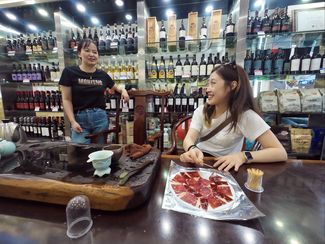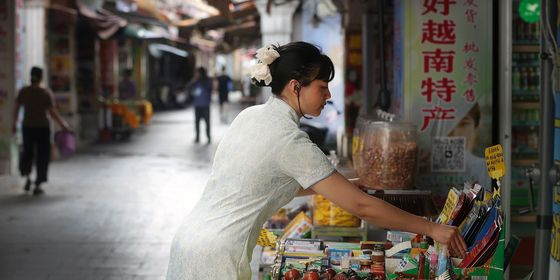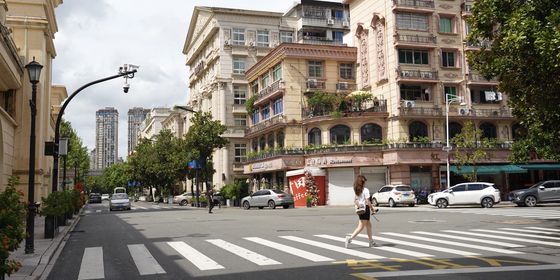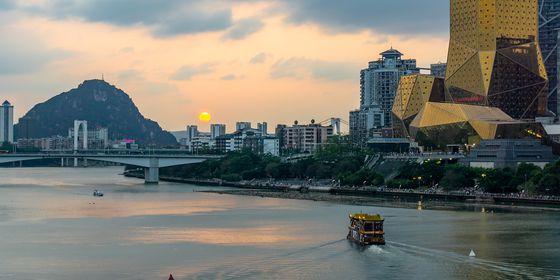A guesthouse in the Snow Town was punished for overcharging customers
Locked between the warm currents of the Sea of Japan and Lake Baikal’s cold front, a small village in northeast Heilongjiang province, has become famous in recent years, thanks to the long-running travel show Where Are We Going, Dad? Now, the cozy site is infamous—thanks to a scam that plagues many of China’s most famous tourist attractions
In December, a tourist to “Snow Town” complained that “No matter how white the snow, it can’t cover the purely black heart! Never go to Snow Town any more!” saying that a guesthouse owner in Snow Town tried to charge them for their room beyond what they’d already paid through Ctrip.com, and turfed them out when they refused (then threatened to withhold their refund unless they left him a good review online).
The local cuisine was also thoroughly dissed for its expense: A bowl of instant noodles cost 60 RMB; a plate of pickled vegetables stir-fired with vermicelli, 78 RMB; stewed potato and eggplant was 88 RMB; a simple dish of stirred shredded meat commanded a price of 288 RMB.
The post attracted widespread public attention and put Snow Town at the center of a controversy. (Officials who have investigated reported that the price of instant noodles was actually 10 RMB, and it was the 60th item on the menu; they also couldn’t confirm any of the other prices. The guesthouse was fined and ordered to suspend their business until they make improvements.)
It’s hardly “news” that customers encounter scams at tourist attractions. In January 2012, a famous restaurant in Sanya was exposed for tricking customers with its seafood prices and policies: One manager infamously grabbed a fish from a nearby tank, killed it in public, and demanded 6,000 RMB, after a customer inquired its price.
Less than a month later, another tourist post a bill on Weibo for 9,746 RMB for seven dishes. Many other netizens also stood out to share their experience of being swindled in Sanya, and the city became infamous for “sky-high-priced seafood.”
A similar story happened in Qingdao, Shandong province in 2015. A diner ordered a dish of prawns, which was marked as 38 RMB on the menu. But when he finished the meal, he was given a bill of 1,520 RMB. The restaurant told him that the price on the menu was “per prawn.”
Scams and rip-offs are a common part of any developing economy, particularly when rule of law of law is weak and selective, to encourage local entrepreneurship. Many Chinese choose to travel with tour groups to avoid this, though of course the groups themselves may be corrupted from the outset. In a 2014 video, a guide in Lijiang, Yunnan province was shown scolding tourists: “Buying nothing is even more shameful than prostitution.” It was no one-off; many tourists claimed they were forced to consume Yunnan “attractions” on the trip.
In 2017, Yunnan vice-governor Chen Shun went undercover in a tourist group to Lijiang. Hilariously, People’s Daily reported his trip in detail, which included “one on one” service (meaning Chen was watched in the store and if he didn’t spend a certain amount of money, he was not allowed to leave).
Still, China’s travel industry is developing fast. Over the New Year holiday, China received 133 million tourists, a 11 percent increase compared with the same period of last year. Some advice? If something bad happens, post it on Weibo.
Correction (Jan. 11, 2018): The post has been updated with more details from the original Snow Town tourist’s overcharge complaint and results of the officials’ investigation












